For an attribute which need to be validated, lets say for an entity we have country field as VO This country field needs to be validated to be alpha-3 code as per some business logic required by domain expert.
NOTE:
*We need to persist this country data as it can have other values also and possible in future there can be addition, updating and deleting of the country persisted data.
This is just one example using country code which may rarely change, there can be other fields which needs to be validated from persistence like validating some quantity with wrt data in persistence and it won't be efficient to store them in memory or prefetching them all.
Another valid example can be user creation with unique and valid domain email check, which will need uniqueness check from persistence *
Case 1.
Doing validation in application layer:
If we call repository countryRepo.getCountryByCountryAlpha3Code() in application layer and then if the value is correct and valid part of system we can then pass the createValidEntity() and if not then can throw the error directly in application layer use-case.
Issue:
- This validation will be repeated in multiple use-case if same validation need to be checked in other use-cases if its application layer concern
- Here the business logic is now a part of application service layer
Case 2
Validating the country code in its value object class or domain service in Domain Layer
Doing this will keep business logic inside domain layer and also won't violate DRY principle.
import { ValueObject } from '@shared/core/domain/ValueObject';
import { Result } from '@shared/core/Result';
import { Utils } from '@shared/utils/Utils';
interface CountryAlpha3CodeProps {
value: string;
}
export class CountryAlpha3Code extends ValueObject<CountryAlpha3CodeProps> {
// Case Insensitive String. Only printable ASCII allowed. (Non-printable characters like: Carriage returns, Tabs, Line breaks, etc are not allowed)
get value(): string {
return this.props.value;
}
private constructor(props: CountryAlpha3CodeProps) {
super(props);
}
public static create(value: string): Result<CountryAlpha3Code> {
return Result.ok<CountryAlpha3Code>(new CountryAlpha3Code({ value: value }));
}
}
Is it good to call the repository from inside domain layer (Service or VO (not recommended) ) then dependency flow will change?
If we trigger event how to make it synchronous?
What are some better ways to solve this?
export default class UseCaseClass implements IUseCaseInterface {
constructor(private readonly _repo: IRepo, private readonly countryCodeRepo: ICountryCodeRepo) {}
async execute(request: dto): Promise<dtoResponse> {
const someOtherKeyorError = KeyEntity.create(request.someOtherDtoKey);
const countryOrError = CountryAlpha3Code.create(request.country);
const dtoResult = Result.combine([
someOtherKeyorError, countryOrError
]);
if (dtoResult.isFailure) {
return left(Result.fail<void>(dtoResult.error)) as dtoResponse;
}
try {
// -> Here we are just calling the repo
const isValidCountryCode = await this.countryCodeRepo.getCountryCodeByAlpha2Code(countryOrError.getValue()); // return boolean value
if (!isValidCountryCode) {
return left(new ValidCountryCodeError.CountryCodeNotValid(countryOrError.getValue())) as dtoResponse;
}
const dataOrError = MyEntity.create({...request,
key: someOtherKeyorError.city.getValue(),
country: countryOrError.getValue(),
});
const commandResult = await this._repo.save(dataOrError.getValue());
return right(Result.ok<any>(commandResult));
} catch (err: any) {
return left(new AppError.UnexpectedError(err)) as dtoResponse;
}
}
}
In above application layer,
this part of code :
const isValidCountryCode = await this.countryCodeRepo.getCountryCodeByAlpha2Code(countryOrError.getValue()); // return boolean value
if (!isValidCountryCode) {
return left(new ValidCountryCodeError.CountryCodeNotValid(countryOrError.getValue())) as dtoResponse;
}
it it right to call the countryCodeRepo and fetch result or this part should be moved to domain service and then check the validity of the countryCode VO?
UPDATE:
After exploring I found this article by Vladimir Khorikov which seems close to what I was looking, he is following
As per his thoughts some domain logic leakage is fine, but I feel it will still keep the value object validation in invalid state if some other use case call without knowing that persistence check is necessary for that particular VO/entity creation.
I am still confused for the right approach
